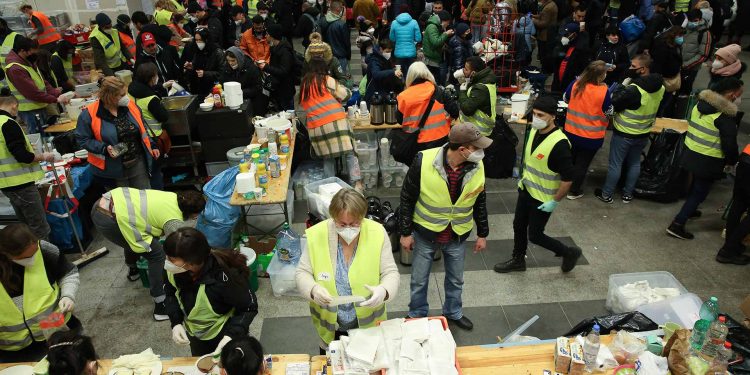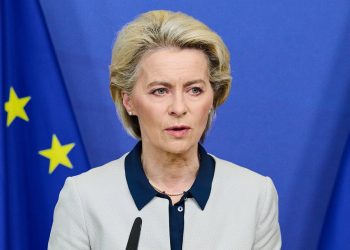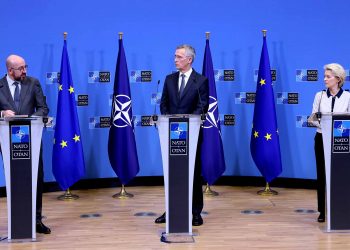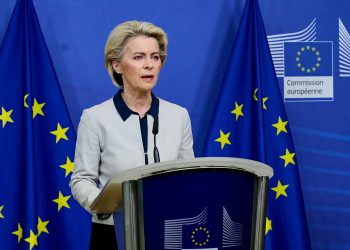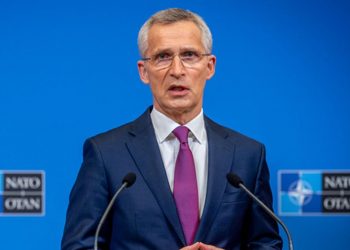More than two million refugees have now been forced to flee their homes in Ukraine to find safety in neighbouring countries. Two million people who, only a week ago, were working, studying, raising children or enjoying their pension. Two million men, women and children who never thought the current situation would one day become their reality.
Russia began an open military invasion of Ukraine
As the humanitarian situation in Ukraine deteriorates and neighbouring countries receive Ukrainians fleeing their country, the European Commission is working on all fronts to provide emergency assistance.
Anti-migrant town welcomes Ukrainian refugees in Hungary. ‘Fortress’ Hungary opens doors!!!
The Russian invasion of Ukraine has triggered the swiftest refugee displacement crisis in Europe since World War II, prompting more than 2.5 million people to flee the country during the conflict’s first two weeks.
EU responds to Russia’s invasion of Ukraine with massive sanctions
The Commission outlines the very substantial support the EU is making available to help people fleeing war in Ukraine, as well as the EU countries receiving them. In the face of Russia’s unprovoked and unjustified military invasion of Ukraine, European solidarity in action is helping people through direct humanitarian aid, emergency civil protection assistance, support at the border, as well as a clear legal status allowing those fleeing the war to receive immediate protection in the EU.
The assistance available to refugees fleeing Ukraine includes:
- Humanitarian support: As President von der Leyen has announced, €500 million from the EU budget is being directed to deal with the tragic humanitarian consequences of the war, both inside Ukraine and beyond. Of this, €90 million in humanitarian aid including €85 million for Ukraine and €5 million for Moldova, is already under way to provide food, as well as water, healthcare, shelter, and to help cover the basic needs of the most vulnerable. Through the largest ever activation of the EU Civil Protection Mechanism in response to an emergency, millions of items including vehicles, medical kits, tents, blankets, and sleeping bags have already reached those in need in Ukraine, while further assistance is delivered to neighbouring Moldova, Poland and Slovakia to support all those fleeing the war.
- Support for border management: The Commission has issued operational guidelines to help Member States’ border guards in managing arrivals at the borders with Ukraine efficiently and reduce waiting time while maintaining a high level of security. EU agencies are also providing extra staff and expertise to support Member States, with for instance 49 Frontex staff deployed at EU-Ukraine and Moldova-Ukraine borders and an extra 162 staff being deployed to Romania. Moldova will also receive an additional €15 million to help manage the situation.
- Protection for those fleeing and support for reception capacity: In record time the EU unanimously agreed to activate the Temporary Protection Directive to bring clarity and security to people in need, offering rights to welfare support, access to the job market and education. Central to this approach is the solidarity between Member States. A ‘Solidarity Platform’, where Member States can exchange information about reception capacity will be coordinated by the Commission. The Home Affairs funds for 2021-27 will also bring significant extra resources for Member States to ensure adequate reception facilities and effective asylum procedures. The Commission is also proposing to prolong the implementation period for the money available to Member States under the 2014-2020 Home Affairs funds, which would release around €420 million in additional support.
- Cohesion policy action for refugees in Europe: The Commission is also adopting the “Cohesion’s Action for Refugees in Europe” (CARE) legislative proposal. This will bring additional flexibility to finance a wide range of measures supporting people fleeing Ukraine, from the European Regional Development Fund (ERDF), the European Social Fund (ESF) and the Fund for the European Aid to the Most Deprived (FEAD). For example, these cohesion funds can be spent on investments in education, employment, housing, health and childcare services, and in the case of FEAD, on basic material assistance like food and clothing. To further support Member States, the exceptional 100% co-financing rate applied in response to the pandemic will be extended by a year. Moreover, around €10 billion from the 2022 Recovery Assistance for Cohesion and the Territories of Europe (‘REACT-EU’) funds is readily available and can also be used to finance actions to support those fleeing Ukraine.
The historic exodus of mostly women and children, coupled with harrowing images depicting the plight of both civilians in Ukraine and refugees in neighboring countries, has fueled global outcry.
Viktor Orbán has publicly condemned Russia’s war and backed EU sanctions!!!
In response to an exodus from Ukraine that is predicted to be “Europe’s largest refugee crisis this century”, the EU has enacted legislation to provide immediate, temporary protection to refugees. Other measures taken include humanitarian aid packages, a Solidarity Platform, and greater flexibility for states to draw on EU funding. Further, new EU border management guidelines aim to enable the efficient management of arrivals and speed up support for vulnerable persons. Reports of discriminatory treatment against third country nationals fleeing Ukraine have been deplored by UN agencies and special rapporteurs.

